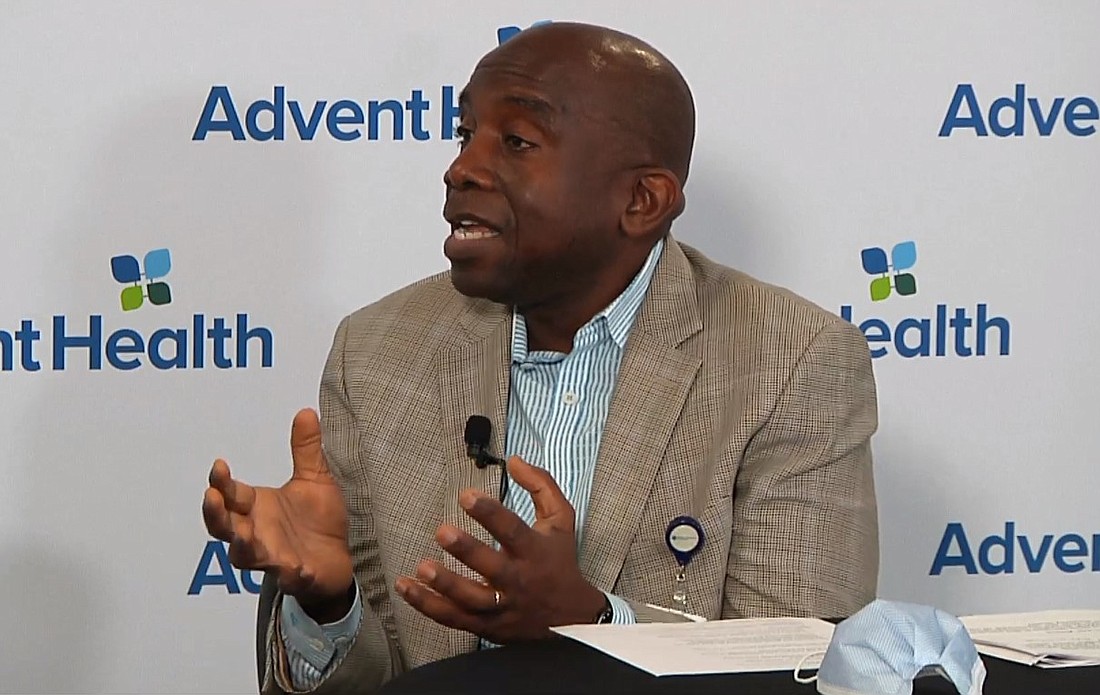- April 20, 2024
-
-
Loading

Loading

by: AdventHealth
The number of people who need mental health care is rising across the community, part of an expected delayed effect of the nation’s yearlong battle with the COVID-19 pandemic, said Dr. Luis Allen, a psychiatrist, at the AdventHealth Morning Briefing on March 18.
“Sometimes we equate it to what we see in time of war,” said Allen, director of the Behavioral Health Center at AdventHealth Orlando. “Now the war is coming close to an end — we are not there yet, so we can’t let down our guard — and now is when we’re starting to see come to the surface more of the consequences of what we’ve seen over the last year.”
The number of people seeking counseling over telehealth at IMPOWER, a community nonprofit that provides behavioral health services, jumped 96% over the past year, said Anna Kesic, president and CEO of IMPOWER, who joined Allen on the morning briefing.
“You’re not alone,” Kesic said. “There are so many people who are experiencing those same issues. If you fell and broke your foot, you’d seek help … Put yourself first. If you aren’t feeling right, talk with somebody about it.”
While the need for mental health support is expected to continue, the number of hospitalized COVID-19 patients at AdventHealth hospitals in Central Florida continued to drop this week.
Allen said that was a good sign, though people must continue to take precautions such as wearing masks, washing hands and keeping socially distant.
He said people experiencing changes in their sleep patterns or eating or drinking habits, should potentially seek help for their mental wellness. He noted the longer one waits to find treatment, the longer that treatment is likely to take.
Allen and Kesic expressed specific concern for seniors, who have often been isolated over the last 12 months as well as children who have experienced school disruptions.